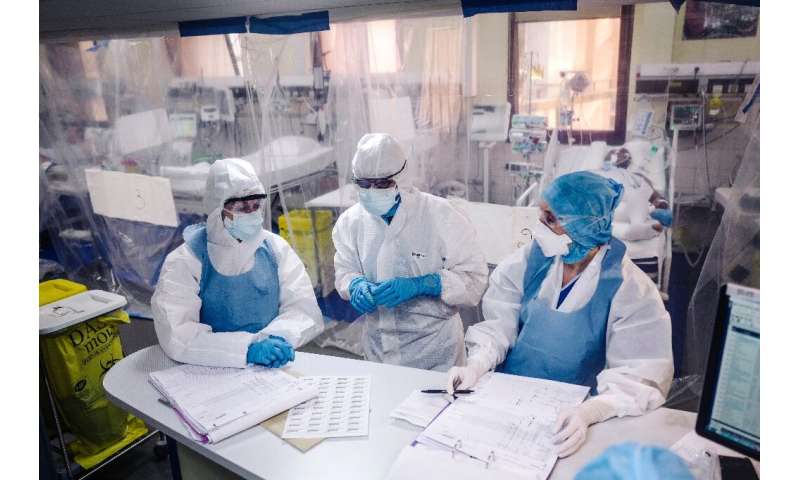
The arthritis drug tocilizumab has shown early promise in preventing extreme inflammation in gravely ill COVID-19 patients, according to a French clinical study.
The treatment, which suppresses the body’s natural immune response, was found to reduce “significantly” the number of deaths or life support interventions compared with a control group of patients.
The study, carried out by the Paris university hospital trust (AP-HP), looked at 129 people hospitalised with moderate or severe viral pneumonia, which occurs in 5-10 percent of COVID-19 patients.
Half received two injections of tocilizumab as well as standard treatment with antibiotics, while the control group received only standard treatment.
While the results are yet to be published, those involved in the research said it showed clear “clinical benefit” of tocilizumab treatment.
AP-HP said it had decided to publicise the study before publishing official results “for public health reasons”.
They stressed however that further research was needed on the effectiveness of the drug and the potential for side effects.
Tocilizumab, sold under the brand names Actemra and RoAcemtra, is commonly used to treat rheumatoid arthritis.
It is a lab-synthesised antibody that inhibits against a specific protein receptor involved in the body’s natural immune response.
Researchers believe the drug might be able to stave off a state of heightened immune response known as cytokine storms—where the body’s reaction to a foreign body such as a disease or chemical creates acute inflammation.
Cytokine storms can be deadly and occur in severely ill COVID-19 patients.
Tocilizumab currently costs around 800 euros ($870) per injection.
Several existing drugs, including anti-viral medicines, are currently being trialled worldwide for COVID-19 treatment.

